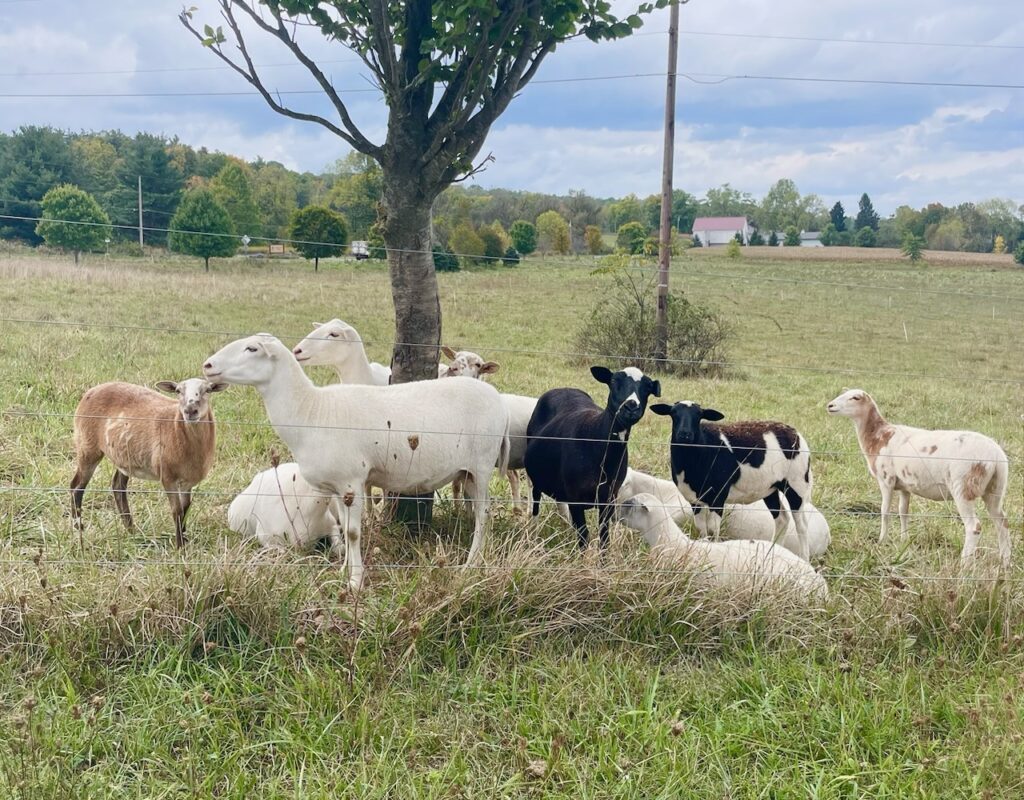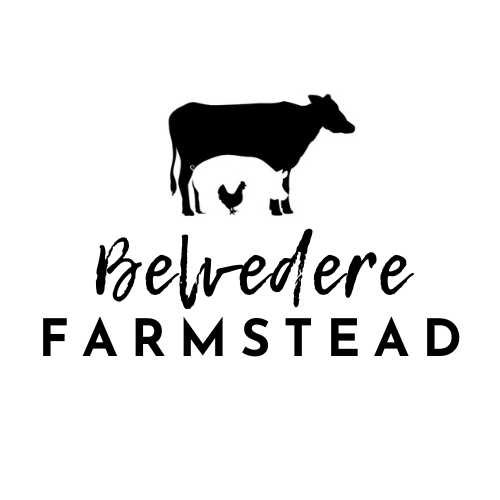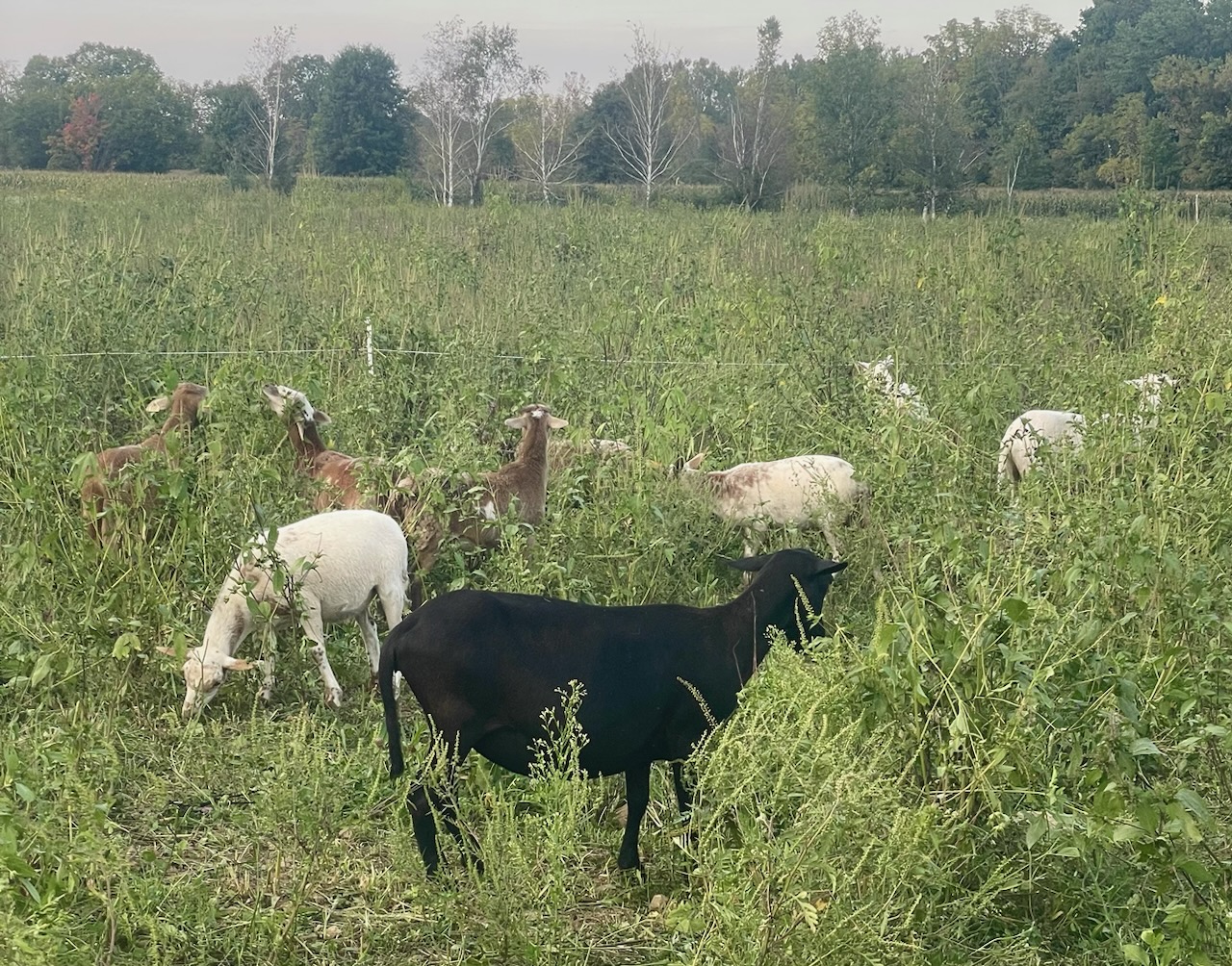I’m committed to regenerative agricultural principles, intensive rotational grazing, and grass-fed animals. I know what a difference those practices make in the soil health and yields of our farm.
And I certainly know that grass-fed lamb is delicious.
But I’ve also learned a lot recently about how those practices (and that incredible taste!) translate to the health and well-being of our bodies and minds.
Wanna know more about the adventure of adding sheep to our farm? Read this.

Grass-Fed Is Nutrient-Dense
“Nutrient-dense” is a pretty common phrase in the grass-fed regenerative agricultural model, and I use it myself a lot.
What it means is this: pound for pound, grass-fed meats contain a significantly higher portion of essential nutrients than their conventionally raised counterparts.
- Higher levels of Omega-3 fatty acids to support metabolic function and heart health
- Higher levels of Conjugated Linoleic Acid (CLA) to support healthy weight management, lean muscle mass, and insulin sensitivity
- Higher levels of antioxidants like vitamin E and selenium to support immune function, digestive health, and cognitive abilities
- Healthy fat for increased and sustained energy (and flavor!)
High nutrient density also means that every cut of meat goes farther.
Smaller portions mean you’re meeting your protein and nutritional needs with fewer overall calories while also feeling full for longer.
Eating For Health
Food is medicine, and wholesome, nutrient-dense, ethically raised food has the power to heal what ails us.
If you want to support your body’s immune system, boost your metabolism, and increase your strength, energy, and vitality, grass-fed meat and dairy (Lamb! Beef! Raw milk!) are the very best choices you can make for your health.
If you want your food to taste amazing and be good for your heart,
If you want to strong muscles and plenty of energy to do what needs doing,
If you want to heal your body naturally,
well then, friend, choose grass-fed.

